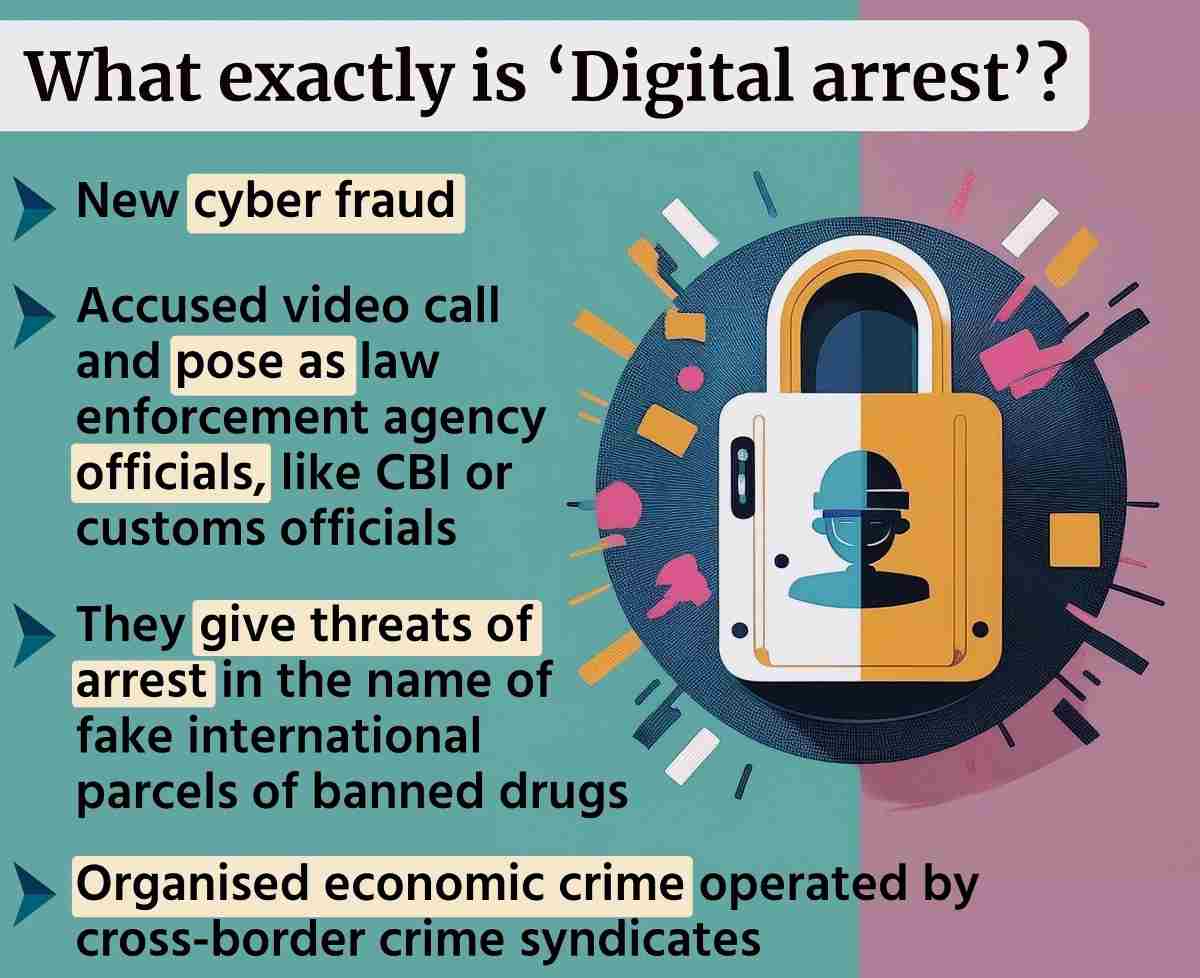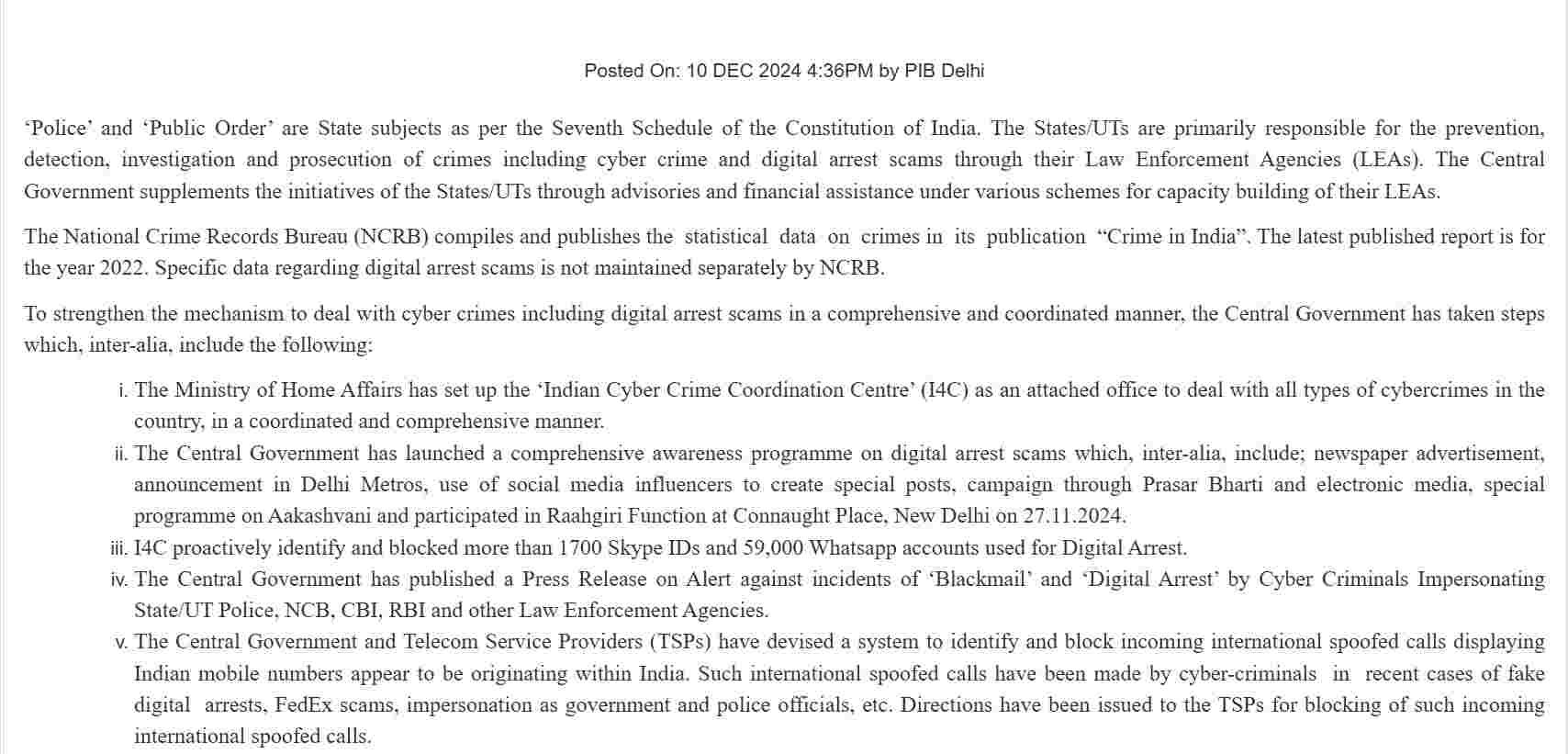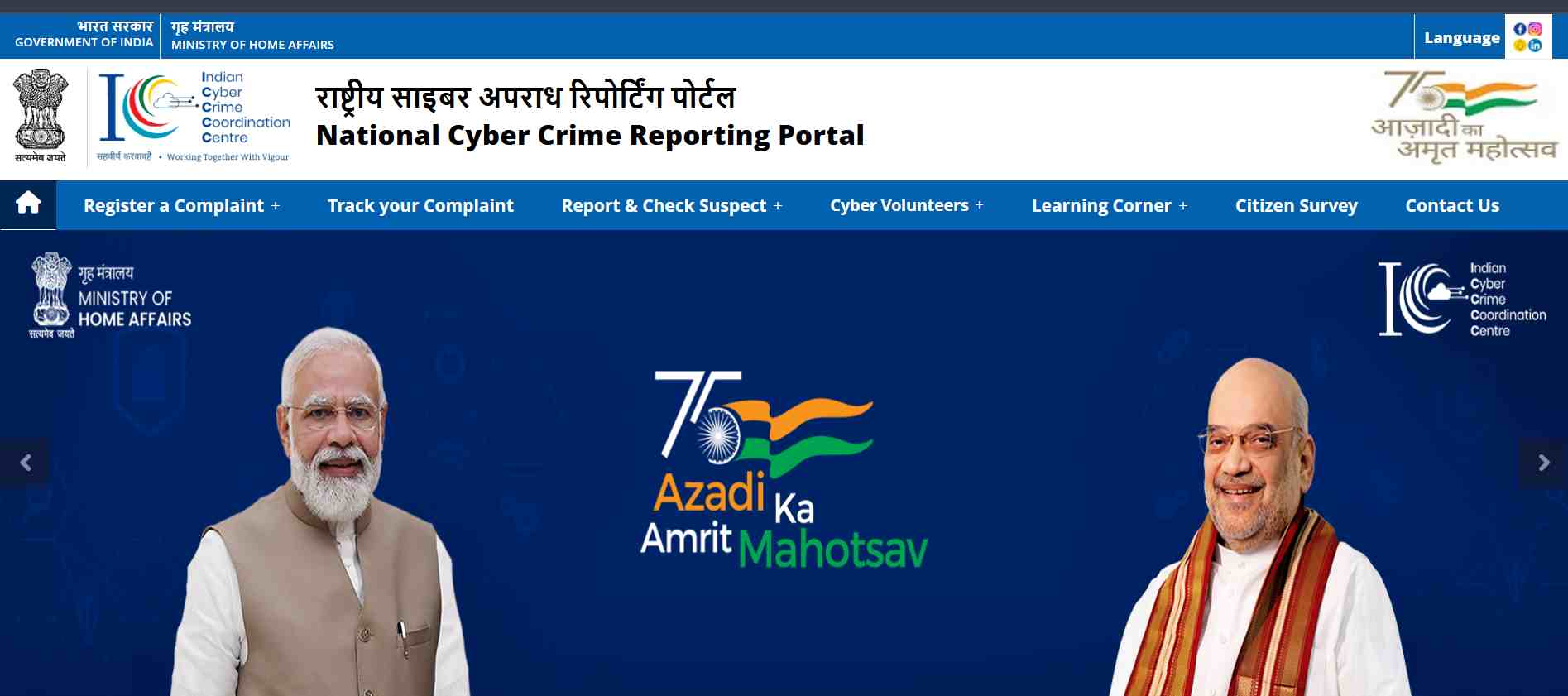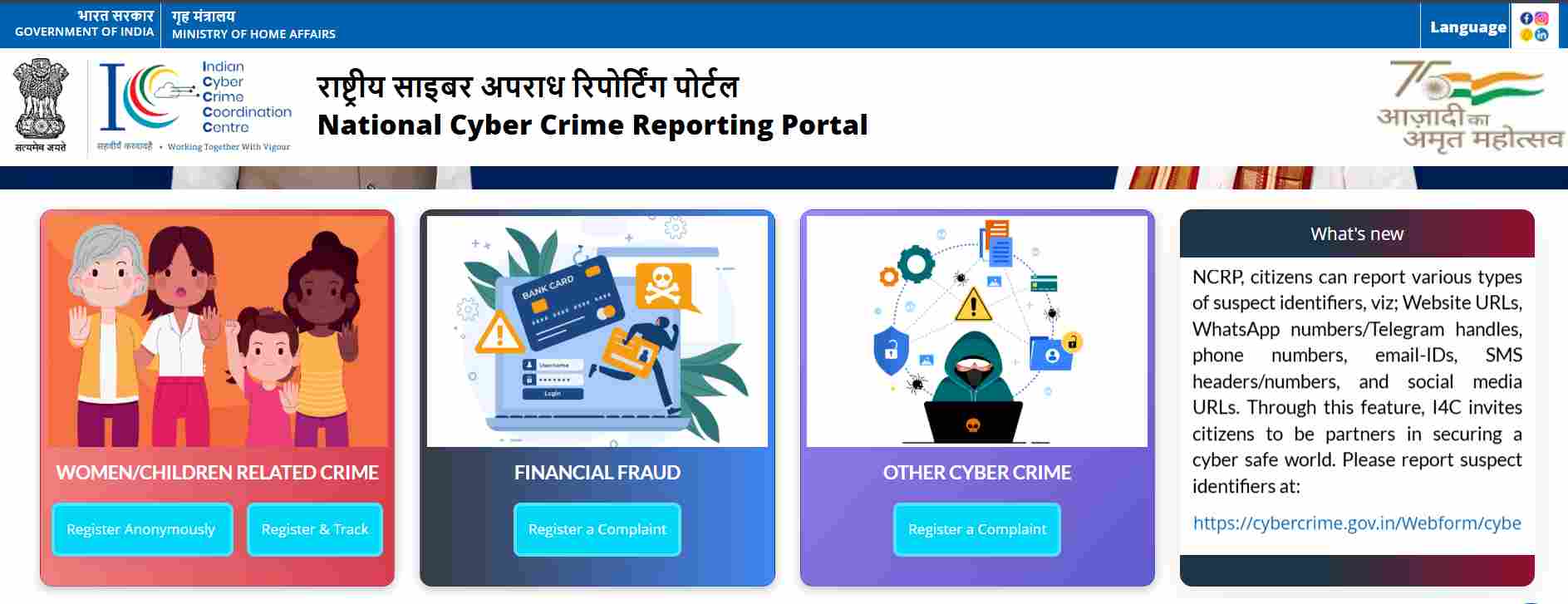Digital arrest refers to a sophisticated type of cyber scam where fraudsters impersonate law enforcement officials to extort money from victims.
This scam has gained notoriety in India, particularly since early 2023, as it exploits psychological tactics to instil fear and panic among targets.
Scammers typically initiate contact through phone calls, video calls, or messages, posing as officials from various law enforcement agencies such as the Central Bureau of Investigation (CBI), Narcotics Control Bureau, or even the Reserve Bank of India (RBI).
They falsely accuse victims of serious crimes like drug trafficking or money laundering, claiming that their involvement has led to a "digital arrest"—a term that has no legal basis in Indian law.
As digital dependence grows, these arrests pose a serious challenge to both the economy and digital freedom. This article explores the losses experienced by various regions in India due to digital arrests and highlights the broader implications for the nation’s digital landscape.
See More| The extensive data leak from a Chinese cybersecurity company- Explained
Understanding Digital Arrest

Source: CivilsDaily
Digital arrest is a term used to describe a specific type of cybercrime, particularly prevalent in India, where scammers impersonate law enforcement officials to extort money from victims.
This scam operates by creating a false narrative that individuals are involved in illegal activities, leading to intimidation and coercion for financial gain.
Definition and Mechanism
Digital arrest refers to the unauthorised control or restriction of an individual's online identity and activities by cyber criminals.
The scammers typically initiate contact via phone calls, video calls, or messages, claiming to be from legitimate law enforcement agencies such as the Central Bureau of Investigation (CBI) or other regulatory bodies.
They falsely accuse victims of serious crimes—like money laundering or drug trafficking—and threaten them with arrest unless they comply with demands for payment.
Reports indicate that in just the first quarter of 2024, individuals lost approximately ₹120 crore (around $14 million) due to these scams.
Victims often transfer large sums of money directly to scammers in a desperate attempt to clear their names or avoid legal consequences.
Preventive Measures
To combat the threat of digital arrest scams, both individuals and businesses should adopt proactive cybersecurity measures:
- Awareness and Education: Regular training sessions on recognising phishing attempts and understanding common scam tactics can empower individuals.
- Verification Protocols: Encourage employees to verify any suspicious communications by contacting relevant authorities directly through official channels.
- Robust Cybersecurity Practices: Implementing strong cybersecurity measures such as two-factor authentication, secure passwords, and regular updates can help protect sensitive information.
- Reporting Mechanisms: Establish clear channels for reporting suspected scams or cyber incidents within organisations.
Indian Cyber Crime Coordination Centre (I4C)

The Indian Cyber Crime Coordination Centre (I4C) is a pivotal government initiative established to combat cybercrime in India.
Launched in January 2020 under the Ministry of Home Affairs, I4C aims to provide a coordinated framework for law enforcement agencies to address cyber threats effectively.
With a budget of ₹415.86 crore, it encompasses several key components, including the National Cyber Crime Reporting Portal and the National Cyber Crime Threat Analytics Unit.
I4C facilitates public awareness campaigns and provides resources for citizens to report cybercrimes, enhancing overall cybersecurity in the country.
What's Next| Telangana has the most cyber-crimes cases in the country. Here's what you need to know!
Impact of Digital Arrest on Other Indian States
The impact of digital arrest scams is being felt across multiple Indian states, leading to significant financial losses and emotional distress for victims.
In Karnataka, the state has reported a staggering loss of ₹109 crore due to 641 digital arrest cases in 2024, with Bengaluru alone accounting for 480 incidents, resulting in losses of ₹42.4 crore.
Maharashtra has also seen a rise in these scams, with reports indicating that victims lost approximately ₹15 crore in 2024, reflecting similar tactics used by fraudsters who impersonate law enforcement officials.
In Uttar Pradesh, authorities have documented over 1,200 cases, with victims collectively losing around ₹25 crore as scammers continue to exploit individuals through fear and intimidation.

Tamil Nadu is not immune either; recent statistics show that around ₹30 crore was lost to digital arrest scams in the state this year, affecting numerous citizens who were coerced into transferring funds under false pretences.
Meanwhile, Telangana has reported approximately ₹20 crore in losses from these scams. A recent case involved an elderly woman and her daughters who lost ₹5.5 crore after being coerced into compliance by scammers posing as CBI officials. Hyderabad is one of the most affected cities.
In West Bengal, authorities have identified over 800 cases of digital arrests, leading to losses exceeding ₹18 crore as scammers target vulnerable populations.
For You| What is Cyber Kidnapping? Know All About the Infamous Term to Stay Safe
Gujarat has also been impacted, with local reports indicating that victims lost around ₹12 crore due to similar fraudulent activities. The state's law enforcement agencies are now focusing on increasing public awareness to combat these scams effectively.

In Rajasthan, the situation mirrors that of other states, with losses reaching ₹10 crore from digital arrest scams reported in just the first half of 2024.
In Delhi, the capital region has witnessed a surge in complaints related to digital arrests, with victims reporting losses totalling approximately ₹14 crore.
The Delhi Police have initiated campaigns to educate citizens about these scams and encourage prompt reporting. Additionally, Haryana has recorded around ₹8 crore in losses attributed to digital arrest scams, prompting local authorities to enhance their cybersecurity measures.
Finally, in Punjab, the impact is evident as well, with reports indicating losses of about ₹9 crore from digital arrest scams. The state's government is actively working on strategies to improve cyber awareness among its residents.
Overall, the total financial loss across these states due to digital arrest scams is estimated at over ₹500 crore since the beginning of 2024.
With more than 92,000 cases reported nationwide and ongoing efforts by the Indian Cybercrime Coordination Centre (I4C) to address this growing menace, it is clear that comprehensive measures are needed to protect citizens and restore trust in digital interactions.
Also Read| What is Cyber Commando? Initiatives and Programs Against Cyber Crime

Comments
All Comments (0)
Join the conversation